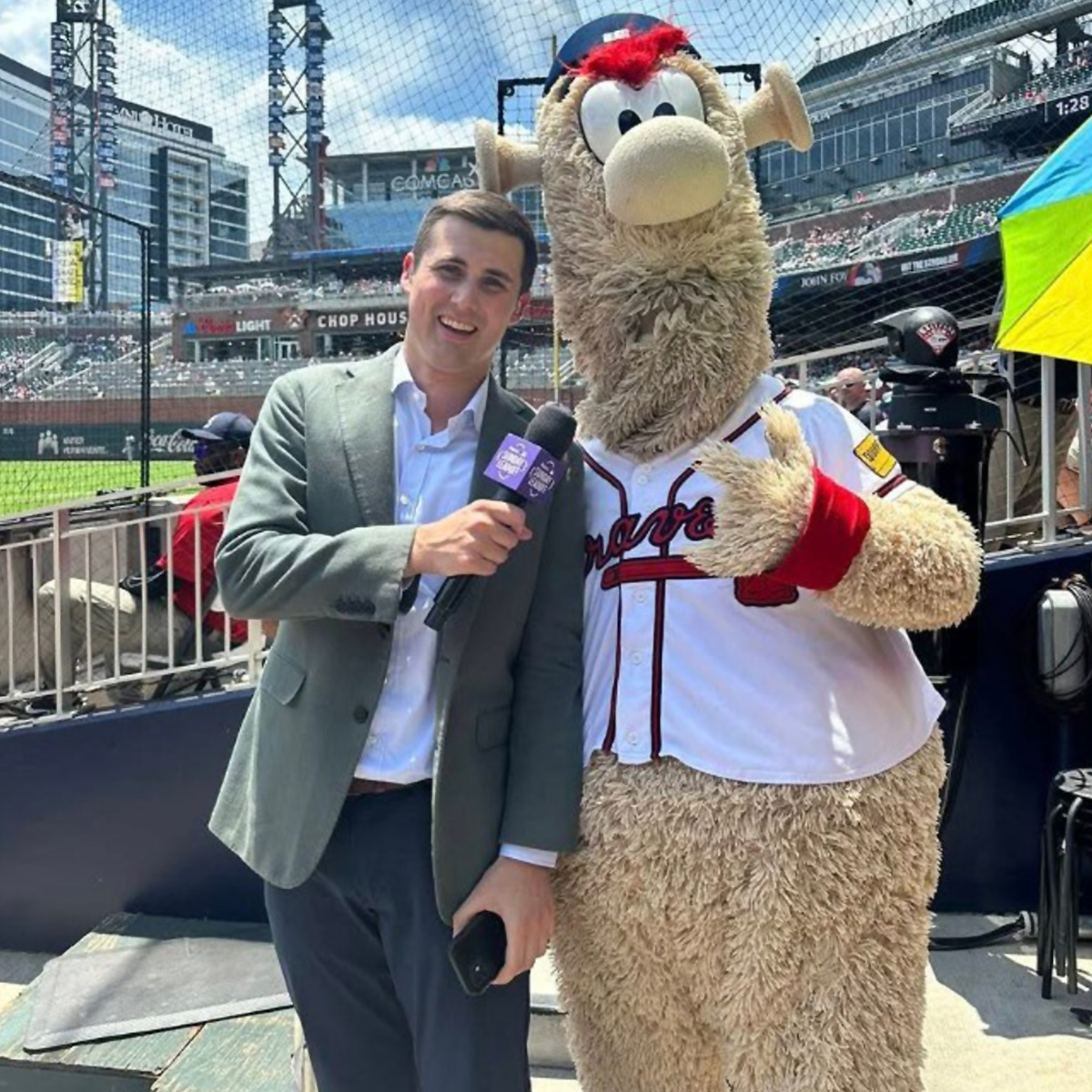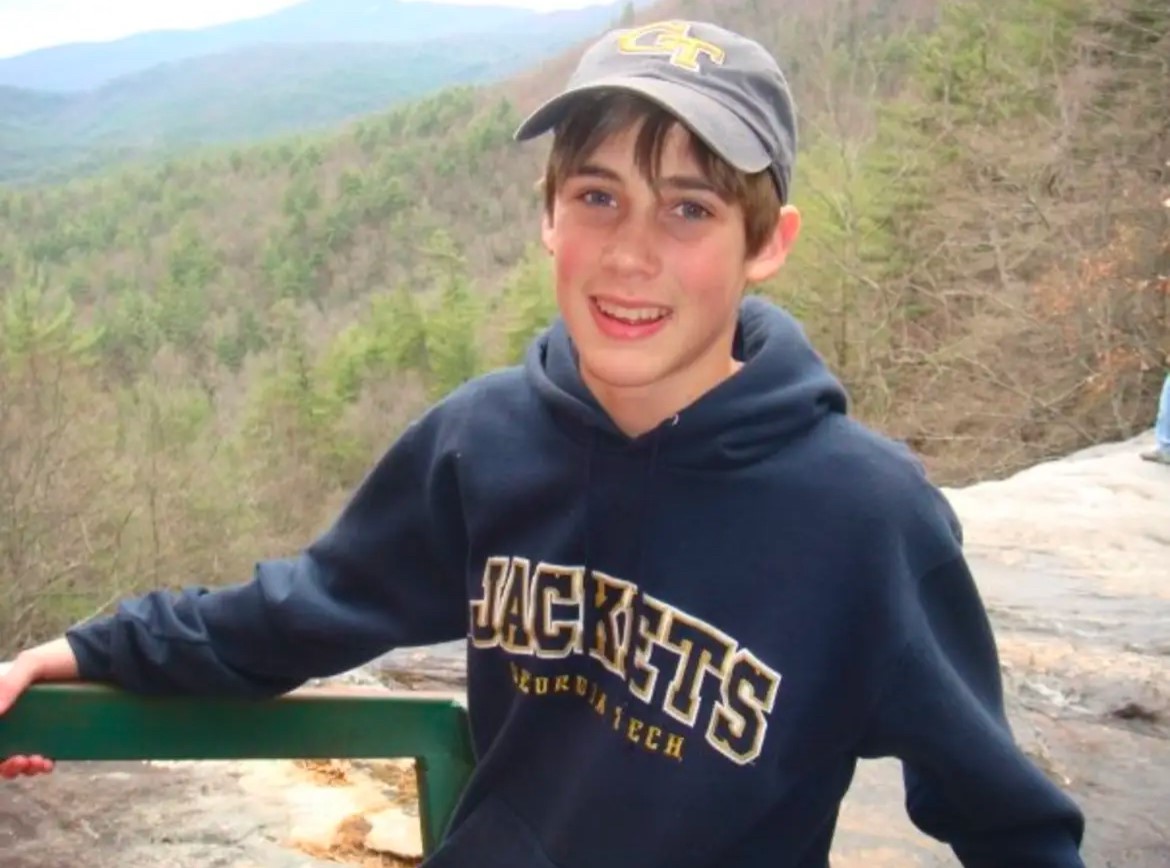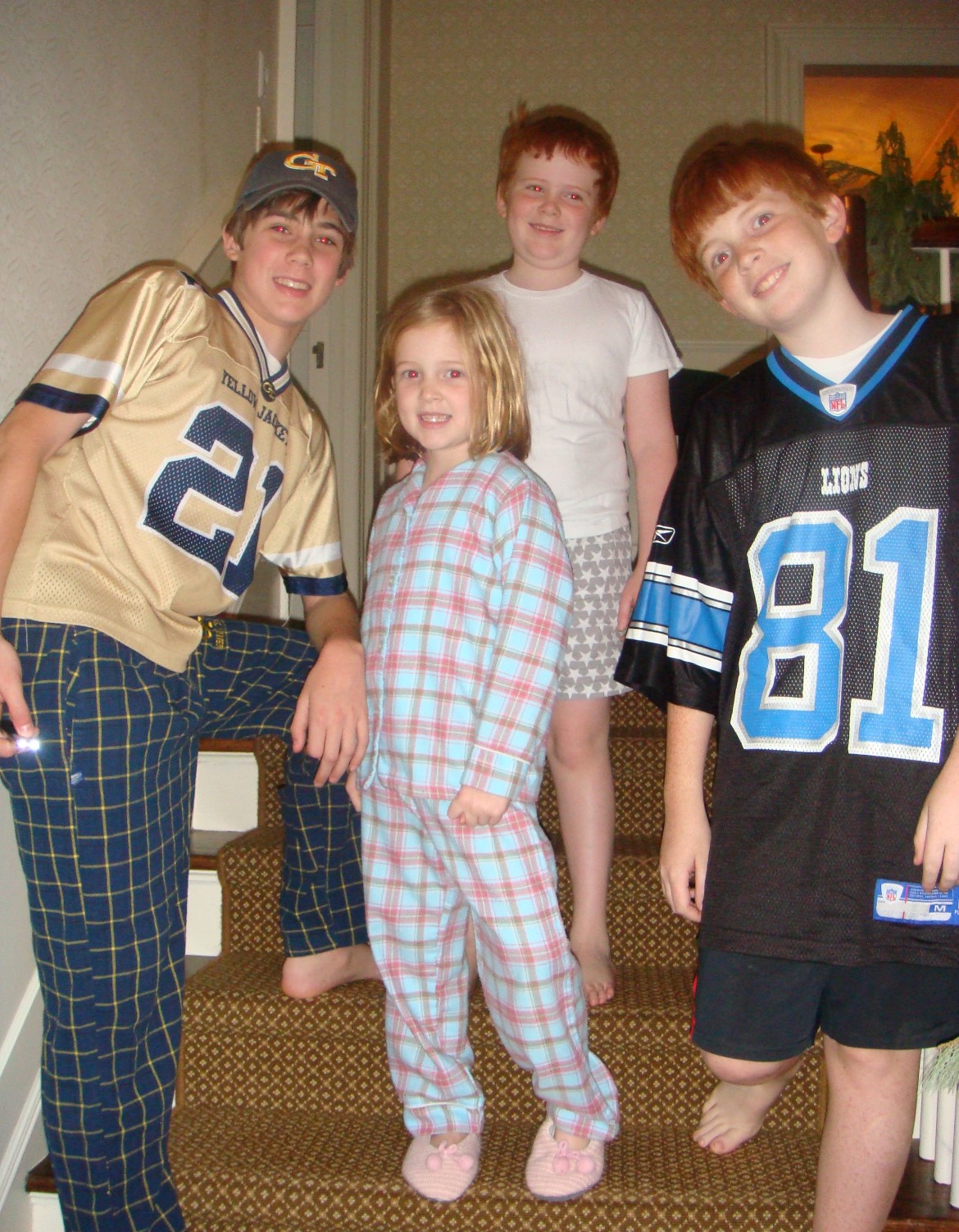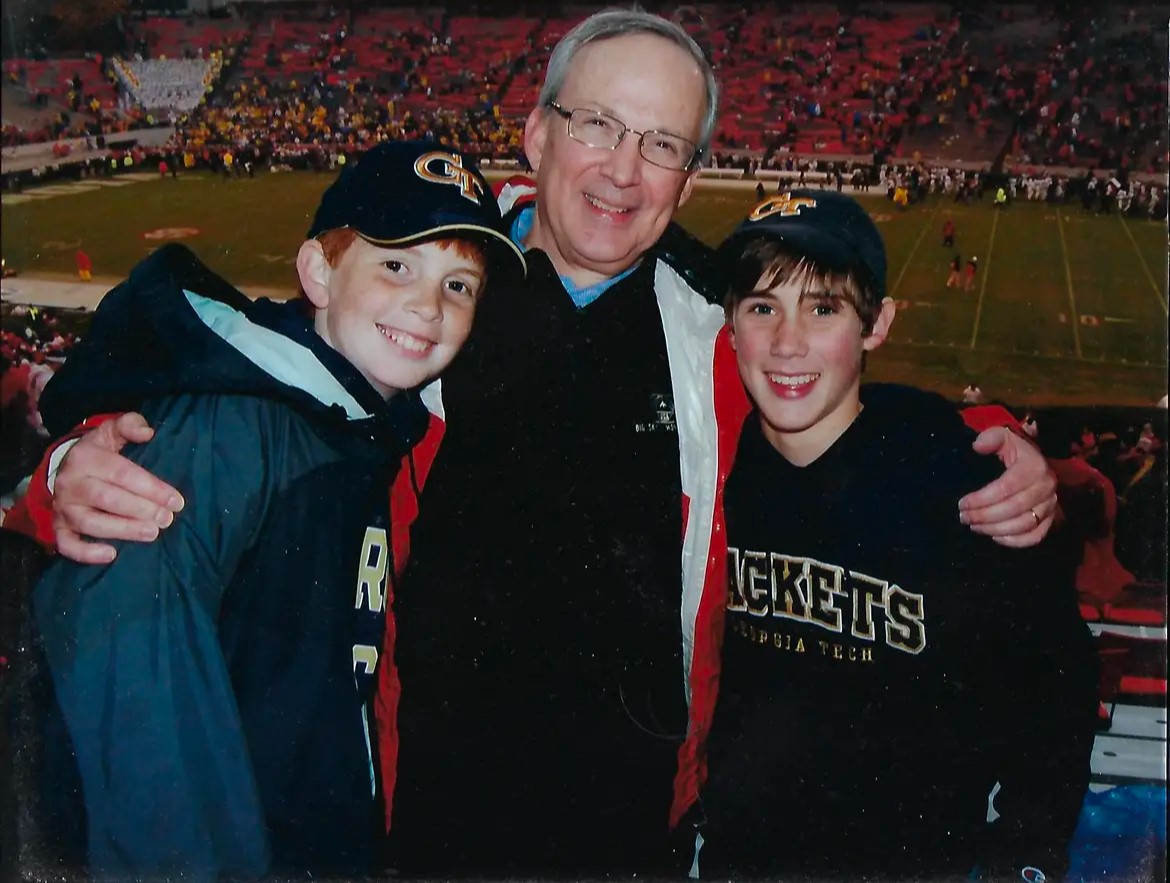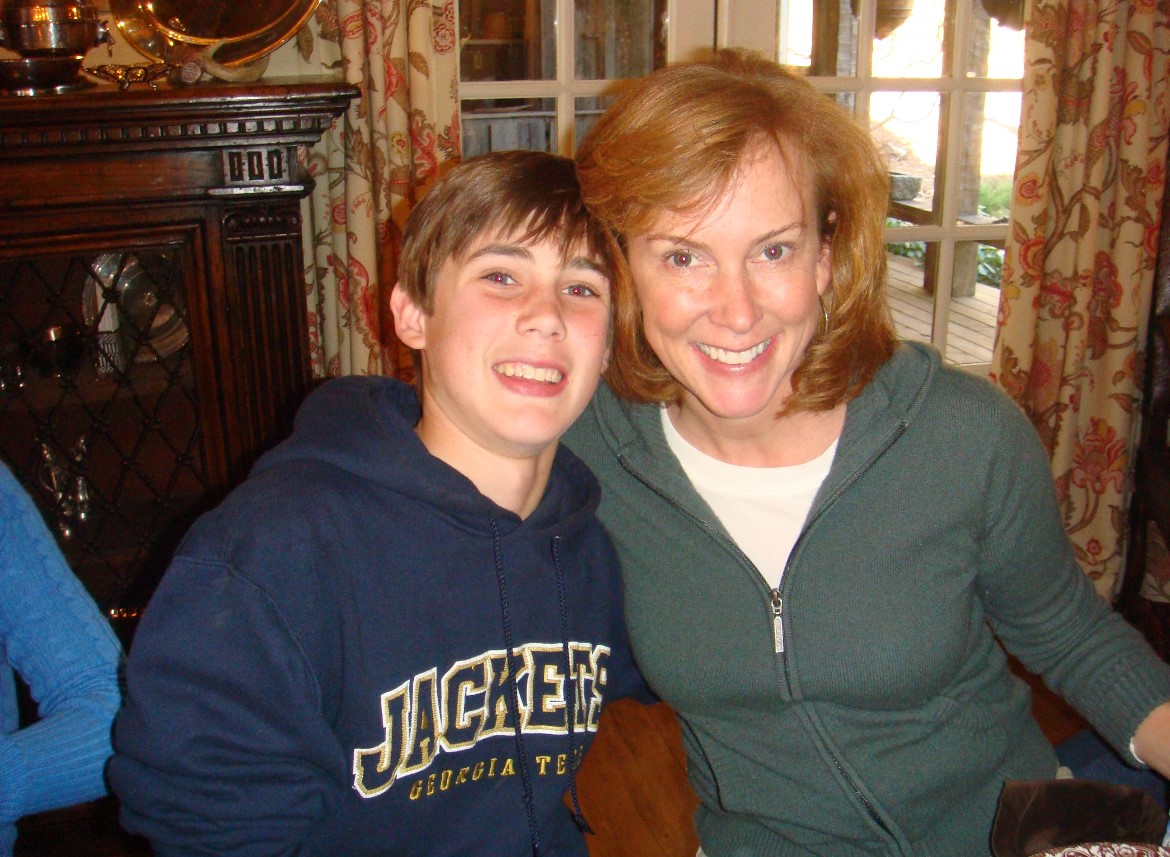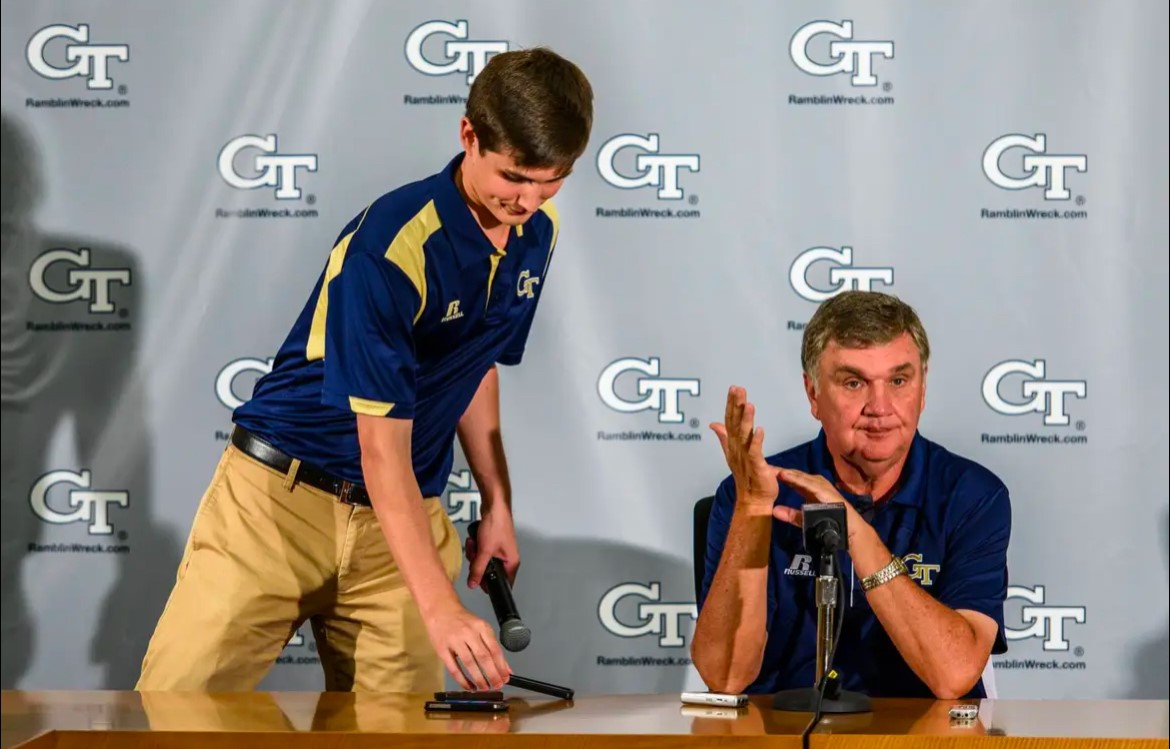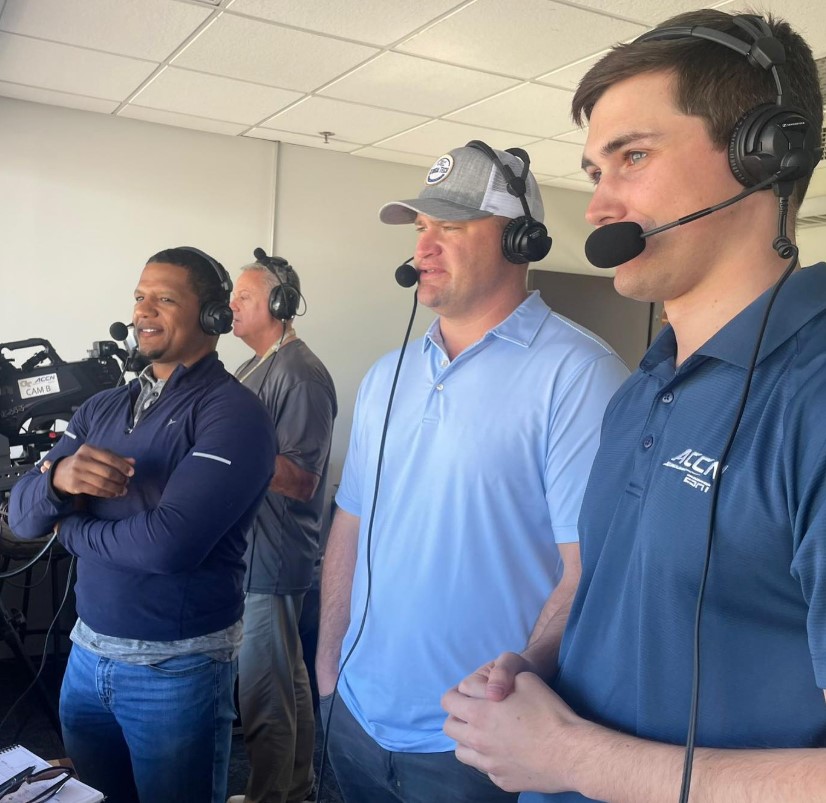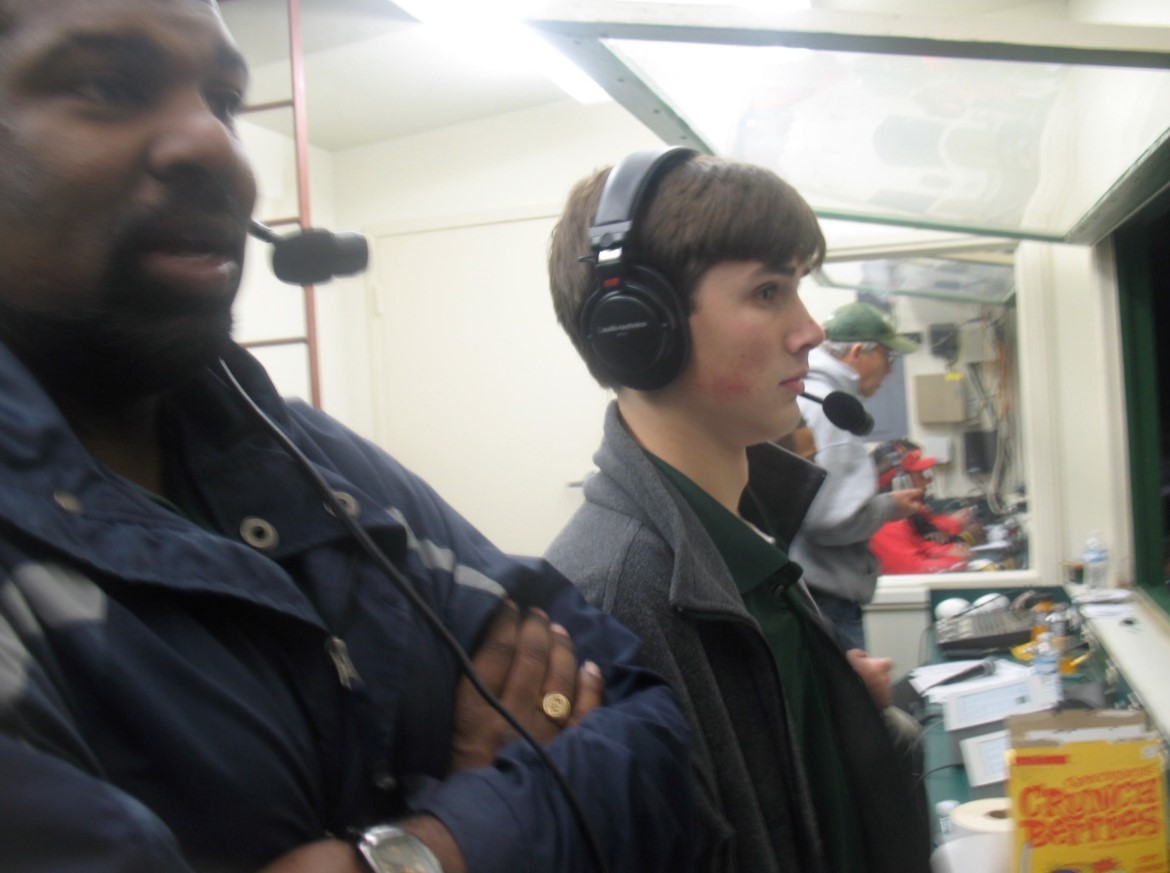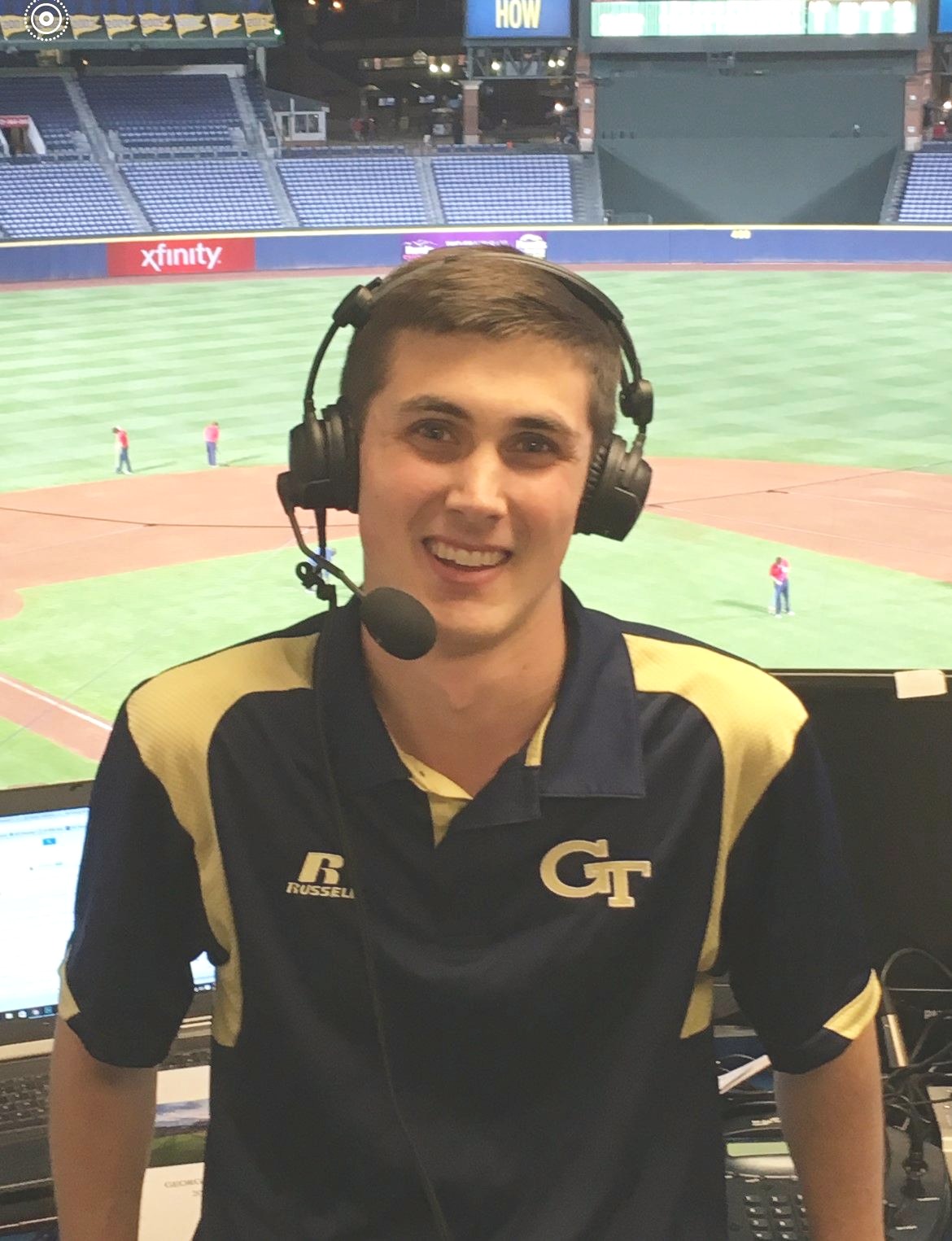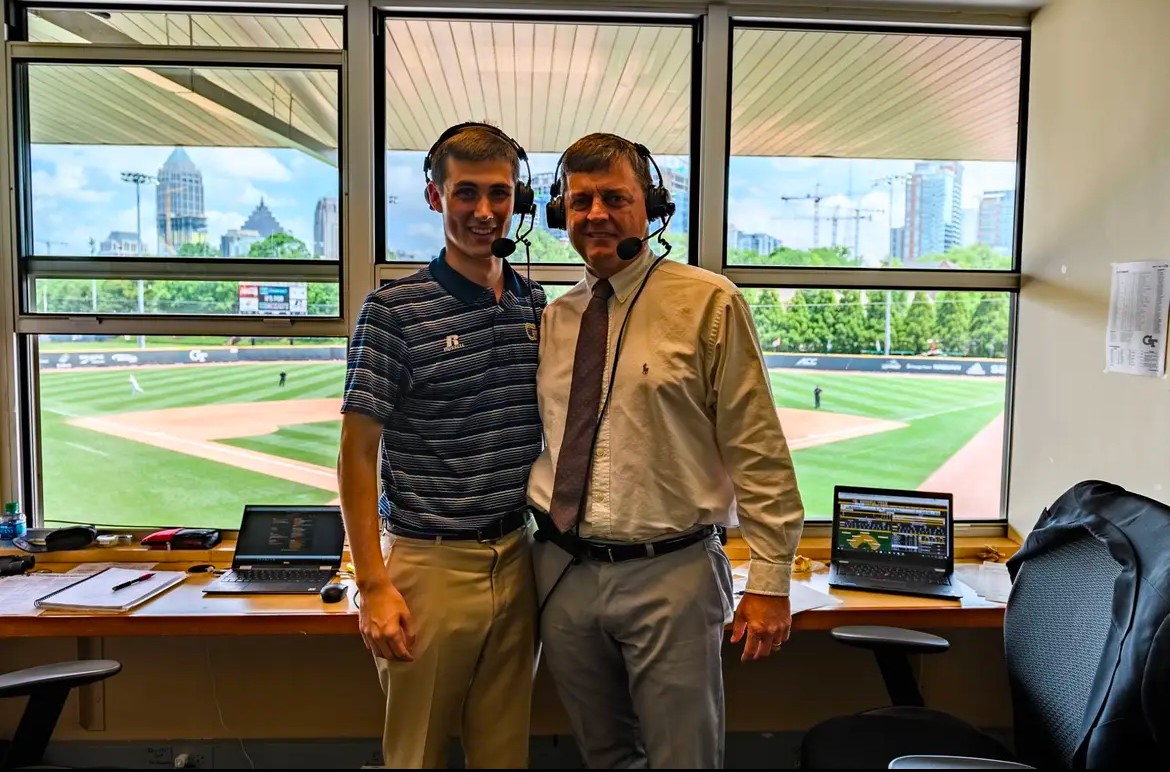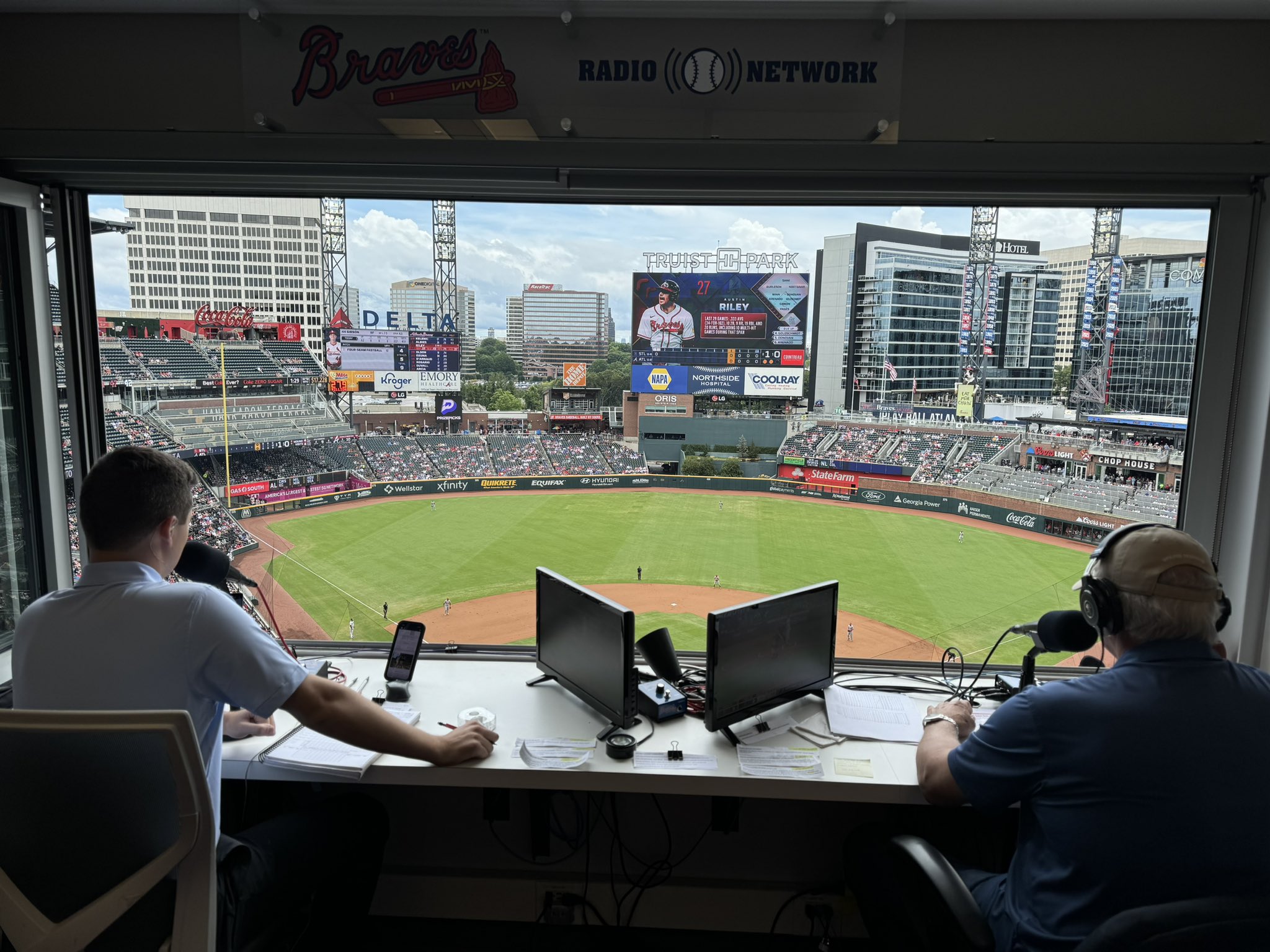For Wiley Ballard, BSBA '17, winning the 2024 National Sports Media Association (NSMA) Georgia Sportscaster of the Year award feels surreal. The Atlanta native joins broadcasting legends like Pete Van Wieren, Skip Caray, and Wes Durham – voices that shaped his childhood in Atlanta.
"I dreamed of being a sports announcer since I was six, so to win Georgia Sportscaster of the Year at any age, but much less in my early 30s – I still struggle to put the words to it," he said.
Ballard's broadcasting journey began with an unexpected source: the Atlanta Thrashers NHL team. He and his younger brother discovered hockey through the Thrashers' youth programs, and Ballard became captivated by play-by-play announcer JP Dellacamera.
"I just thought he was awesome," he recalls. "I thought, 'That looks like a really fun job.'"
His connection to Georgia Tech sports runs deep, though he was the first in his family to attend the Institute.
"We've got very deep roots with Georgia Tech," Ballard said. "My dad grew up going to the games when he was seven or eight years old. My grandfather moved to the area in the 1920s and started the tradition."
His family had season tickets to Tech basketball when he was growing up, where he witnessed the team's Final Four appearance.
During his first year of high school, Ballard discovered Georgia Tech baseball, requesting season tickets as a birthday gift ("probably the best gift I ever got"). He spent countless afternoons at the ballpark, scoring games and envisioning his future. His career trajectory was set after learning that Tech's baseball announcer was a student. When he approached the announcer at a game to ask about the position, he received encouraging news: "Nobody here wants to do the games" – words that would ultimately influence Ballard's college choice.
With the idea of a potential opportunity to be an announcer at Georgia Tech baseball games, Ballard sought out legendary Georgia Tech and Atlanta Falcons broadcaster Wes Durham about whether to attend a university with a reputable broadcasting degree or apply to his beloved Georgia Tech. Durham advised that with strong networking skills, Georgia Tech could provide unique opportunities without the intense competition found at traditional broadcasting schools.
"That's what I wanted to do anyway because I love Georgia Tech, and I just wanted to get on the air.”
After being accepted at Tech, Ballard studied finance while maximizing every broadcasting opportunity.
"I had to be creative with my study hours," he recalls. He's grateful to his professors for supporting his ambitions, allowing him to leave Friday classes early for baseball games. As a freshman, he called 15 baseball games; by sophomore year, that number grew to 40. Soon, he was the primary announcer for Tech baseball.
During this time, the Atlanta Braves reached out to Tech, specifically Mike Stamus, associate director of communications and public relations at the Georgia Tech Athletics Association and the official scorer to the Atlanta Braves. The Braves wanted to know if he knew of a student who would be interested in running the cash register at the press box for Atlanta Braves games. In short order, Ballard got the job. The role proved invaluable for networking with professional broadcasters.
"If Chip Caray wanted a hot dog, he would come up to me and say, 'Hey, here's three dollars.'" Ballard explained. "After he did that 10 or 12 times over a few months, he's like, 'Alright, who are you?'"
He would occasionally send them recordings of his Georgia Tech broadcasts and ask them for feedback. These connections and his ongoing experience calling Georgia Tech baseball, football, and other sports helped build his career.
There were others along the way who played a role in Ballard's career goals. When college baseball season is over, many players continue to play in a summer team with the Sunbelt Baseball League. Announcing for the league was Ballard's summer internship program.
While other undergrads were planning summer internships in banking and finance, Ballard walked into Judy Reese's office, who was then an academic advisor in Scheller's Undergraduate Program Office, and stated he wanted to be a baseball announcer.
"I remember walking into her office with a bit of a grin on my face. She said, 'So what are we thinking,' and I said, 'I think I'd like to be a baseball announcer.' And she said, 'Okay, that sounds terrific. Let's do it. I have no idea how we do it, but we'll get to work on it,'" he said fondly. And that's how he got the gig with the Sunbelt League.
After graduation, Ballard interned with the Braves in their PR office while floating his resume around until a position with Georgia Tech Athletics opened up, where he worked in the Creative and Digital Strategy Office while continuing to broadcast Tech games, including volleyball and softball.
"It's kind of like show business," he says. "You're waiting tables and figuring out how to keep the lights on while pursuing what you want to do."
His persistence paid off as he spent six years as the football radio sideline reporter for Georgia Tech.
Today, Ballard's career continues to flourish with the Atlanta Braves, where he brings creativity and enthusiasm to his broadcasts. He sometimes goes by a three-question rule when he's interviewing on the field: ask the player about a play they were involved in, ask about a teammate, and save the last question for an overarching question about the team's goals.
He also said being creative and setting oneself apart from others is essential. To that end, he's created some memorable moments, including eating an entire container of grasshoppers – a Seattle ballpark specialty – on air during a game.
"It's storytelling. It's live television, and you have to think that stuff through," he explained.
For aspiring broadcasters, Ballard emphasizes the importance of getting behind the microphone early and often.
"The sooner you can get on the air, the better," he advises.
He also recommends being open to different opportunities, noting that every broadcaster's path is unique.
"Everybody has such a different route, so I think the most important thing you do is just try and get involved and start doing stuff. Even if it's just being a cashier at the Braves press box."
For Ballard, his unconventional path to professional sports broadcasting by way of Georgia Tech proved instrumental in achieving his childhood dream.
"Whatever you want to do, go to Georgia Tech," he reflects. "It doesn't matter what that is, but if you want to be the best at what you do, you go to Georgia Tech."
Looking ahead, Ballard continues to thrive in his current role with the Braves and maintains his ultimate dream of becoming a Major League Baseball play-by-play announcer. Given his track record of turning childhood dreams into reality, don't be surprised to hear his voice calling games from the broadcast booth for years to come.
